Session 18/21
Page 3/4 Topic B: planning and performing community meetingsTopic B: Planning and performing community meetings for fathers
Topic B gives you a framework for how to arrange local group meetings of 5-15 people. This practical framework will guide you through your first meeting with a group in a community.
You can start more than one group if needed. We suggest you work with a fellow instructor, and that one instructor (if possible) is male. Use you experience from the Fairstart training and your own ideas – this session is to inspire your own work.
PREPARING SUPPORT FROM IMPORTANT PEOPLE IN THE COMMUNITY
Before you arrange the first community meeting, it is a good idea to look at the local networks and make others interested in the project. Who do you think have much local influence, and will support you? This may be township leaders, religious leaders, social workers, or people from other NGOs.
Please make a list of key persons in formal and informal community networks:
- Who are persons with influence on public opinions about fathers?
- What groups work for the same goal as you do – religious, other NGOs, etc.?
- Who will you contact informally before you arrange a community meeting?
- How will you present your plan?
Present them with the idea of working with you to strengthen fathers. They may help you arrange and attend meetings, invite participants, and create public awareness. This will also give you an idea of whether it is best to invite men or a mixed group of fathers and mothers for the first community meeting.
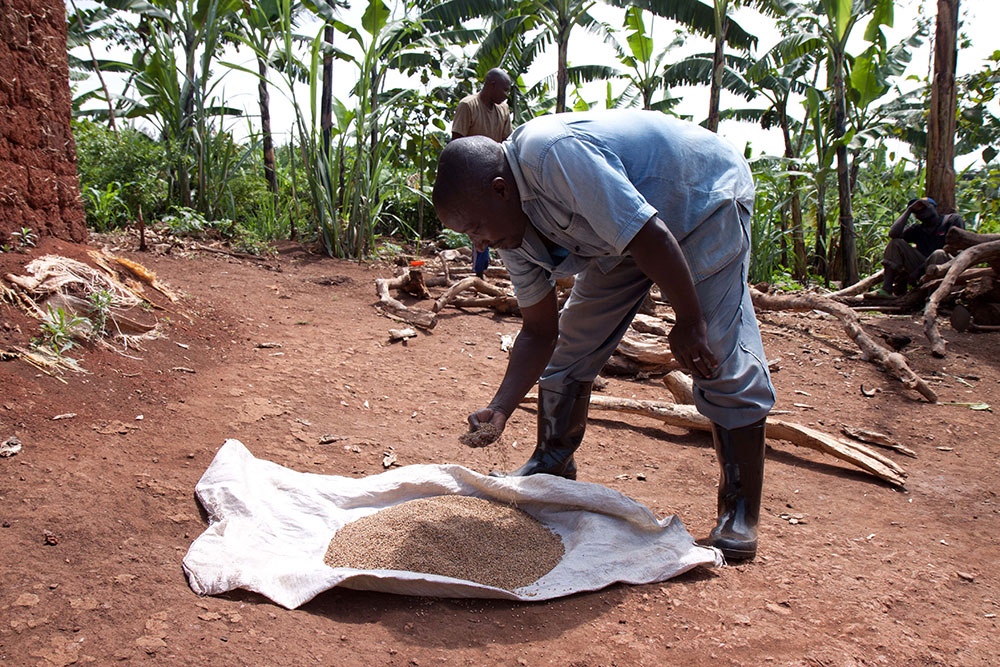
How to conduct discussion groups in your community
As an instructor, you can work to create awareness in local group meetings about the importance of fathers for the lifelong positive development of their children. You can inspire participants in group discussions, and inspire and nurture their own ideas for improving active father engagement. Use your own experience and knowledge.
Starting a group meeting
A group meeting will take two to three hours, depending on what you see fit. You can start a group meeting by describing the traditional role of fathers, and how this changed when moving into cities. Here’s an example of how to start (you can find your own words to set the agenda and purpose of the meeting):
“Thank you for coming today. I have asked you to come because we need to support fathers in our community – to engage them in caring for their children. Living in cities with unemployment has made life difficult for fathers, and their care is so important for our children and young people.
As long as we lived in villages, fathers had much authority. They would provide for and protect their family. They made sure that our traditions and storytelling were handed from one generation to the next. Men were responsible for making boys into men, and older men were respected guides and mentors for their children and young people. But when so many had to give up farming and move into cities, too many fathers could no longer find jobs to provide for their families. Even though it is not their fault, this has created much shame, and many fathers have given up, divorced, or left their families and children. Their pain is often so unbearable that many become alcoholics or turn to drug abuse. This puts our children at risk. In our community, we must all work together to strengthen our fathers.
I have two messages for you: There is no reason for shame – no father is responsible for being unemployed! The other message is: Even if a father cannot provide for his family with money, his love and attention mean the world to how well his children will do in life! That is why I have invited you to this meeting: Let us talk about how we can help fathers in our community understand how important they are for their families and engage them again. We will use the strength of our traditions. Let me give you my own experiences, and then I’ll ask for yours”.
GROUP DISCUSSION
Positive and negative experiences of fatherhood. Find your personal examples. Questions for participants in small dialogue groups.
Group discussion 1
Can you find an example from your own childhood – how a father or grandfather engaged and cared for children? Can you think of fathers who had positive authority, and how their love and care gave their children values and strength in life?
When you have presented your own example, ask the audience:
“Now you heard my experience. Please spend a few minutes with 3-4 men next to you. Talk about your own memories and examples of good fathering. Then, I’ll ask some of you to present them”.
Spend five minutes listening to examples, and thank them for sharing.

Group discussion 2
Then, give the group a personal example of how this great tradition has been challenged by hard work, unemployment and trauma. Here is an example, please find your own:
“Now, let us look at what happened to our great traditions for care from fathers when we were stressed by low wages and unemployment. For me, my father had to work far away from the family, and my mother had to work as a housemaid all day. I missed my father terribly, and when he came home, he was exhausted and had not earned much. They were both so stressed that they often argued, and at times I saw my father beat my mother. He was ashamed that he could not provide for us and started staying out and drinking. In the end, he left our family and found another wife. I sometimes saw him and we talked, but I missed him very much. So, I know how much the care from a father means to his wife and children, and how hard it is for men to care for their families even though they want to.”
Please talk in your group again, and find examples from your own life:
- What were the challenges for your father when you were a child?
- How did this form your own idea about being a father?
- What guidance and care did you miss from your father when you grew up, and as a young person?
MAP LOCAL CHALLENGES FOR FATHERS
“Now we know how important fathers are for the wellbeing of their family and their children. Please help me understand the challenges in this community. I ask you to discuss in small groups (four-to-six persons) for ten minutes: What prevents fathers in this community from engaging in the lives of their children? Please find three examples of what prevents fathers from having close relations with their children. Then, each group will present their thoughts for us”.
When groups have presented what they see as challenges, respond in an open, curious, and appreciative way. You may hear much hopelessness, anger, and resentment. It is important to recognize such feelings, without falling into despair yourself. Respond in an appreciative manner: “I hear what you are saying, this is truly a challenge”, or “It is very understandable that this father lost hope”.
Take a break before presenting a positive view on father engagement
This is a good time to have a break, and prepare to ask the audience to brainstorm for initiatives:
“Thank you for sharing your thoughts about challenges for fathers – now we all know what we must work together to improve. Summing up the examples you gave (please mention them), these were important challenges. Hearing this was impressive, so let’s have a small break for X minutes. After the break, I will tell you about how important fathers are for their families and children, no matter if they are poor. We will work together to find ideas for how we can find new ways to make proud and caring fathers in our community”.
Presenting the importance of father engagement in care for children
After the break, present the positive importance of fathers engaging in their children. You can pick a few examples from Topic A, about how important fathers are for child development, and how much young men and women miss guidance from their fathers.
Encouraging ideas in the audience to support father engagement
If you have been inspired by listening to the group, you may already have some ideas yourself about possible initiatives? However, it is better to wait and encourage the audience to find their own solutions. They will probably end up with the same ideas that you are thinking about, and feel more ownership because they found their own ways.
Now you can start encouraging ideas and initiatives. Here are three examples – but follow your own ideas and those from the audience – you are free to ask other questions:
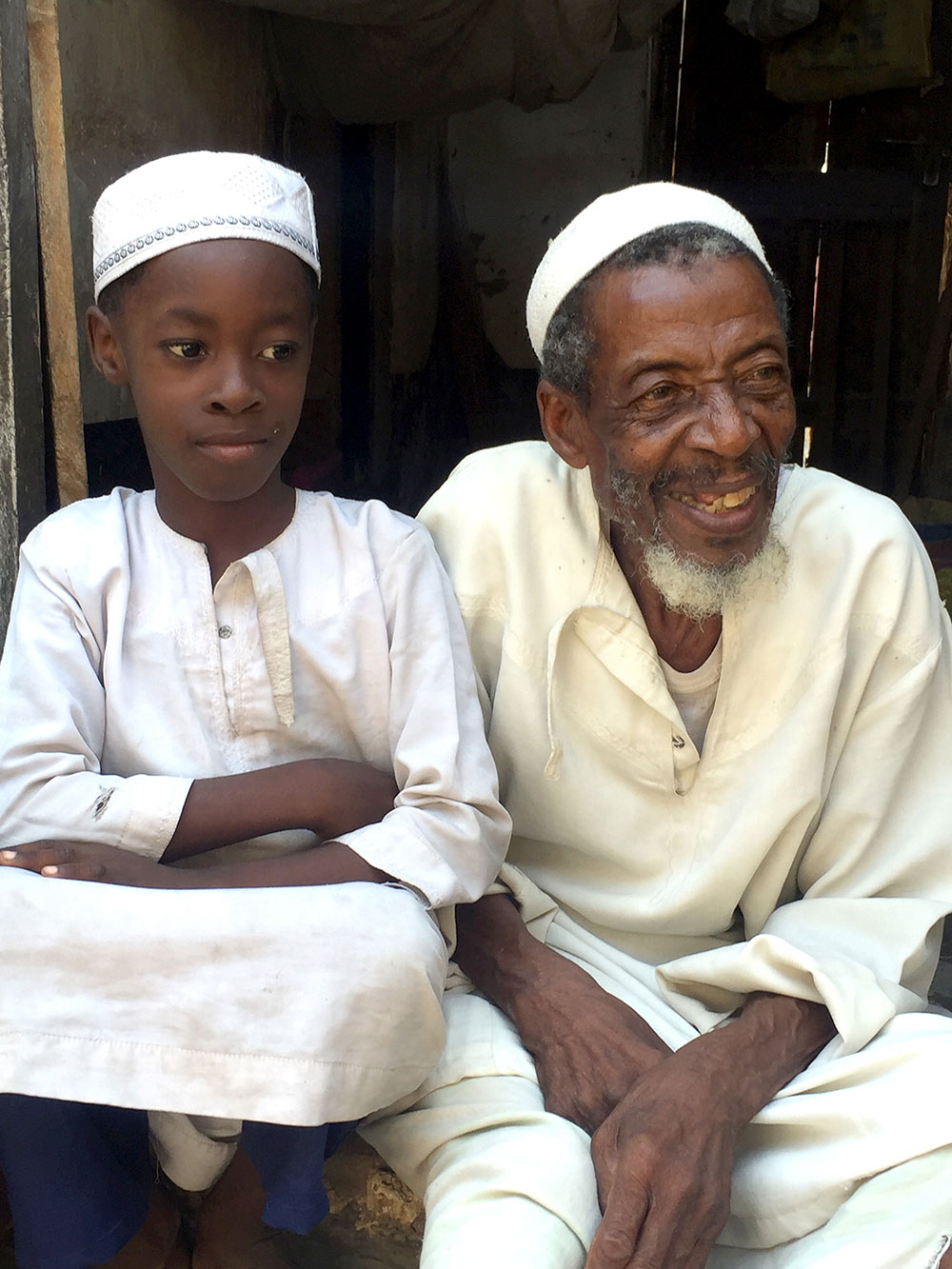
“Welcome back! Before the break, we found three areas where fathers are challenged. Now let us go together and find ideas! How can we work in our community? We must encourage fathers to engage in their families and care for their children, and make them proud of who they are. I will ask you to work in four groups with three questions (please point out the groups). Please work together for 20 minutes. After this, I will listen to your ideas and suggestions”:
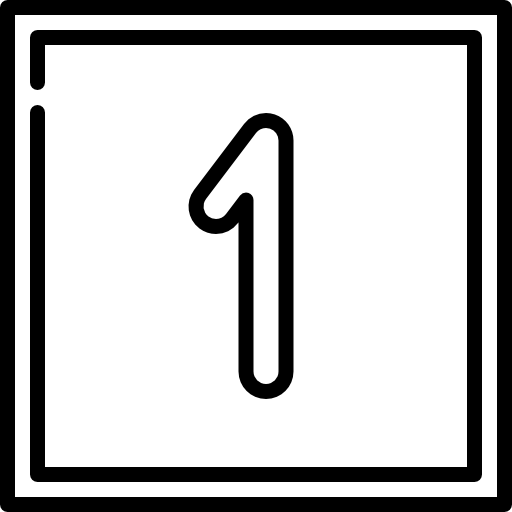
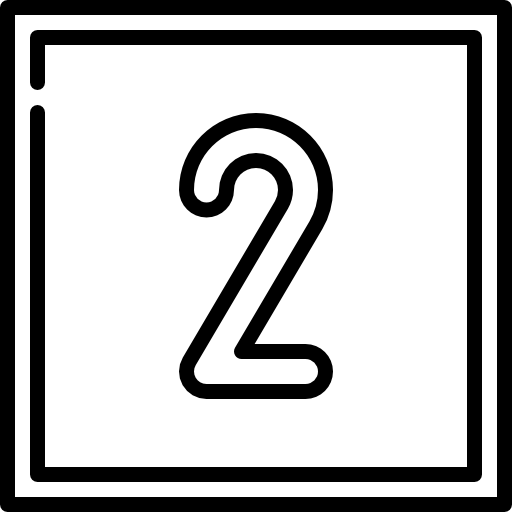

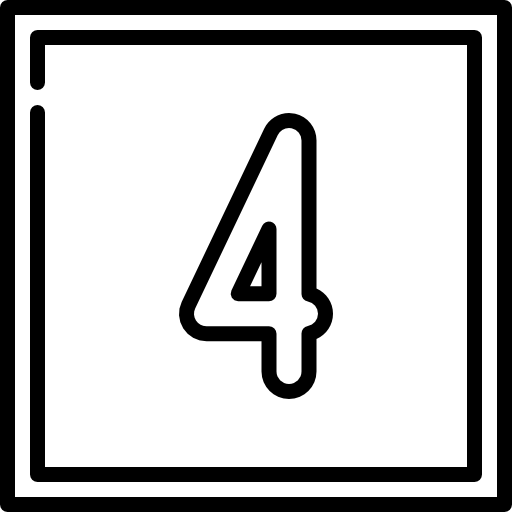
Group 1: Can we make community support groups for fathers?
For example, a small group of experienced men, where fathers can share problems with their children and spouse. They can learn how important fathers are, and get support and advice to resolve conflicts and get back in their families. This may prevent divorces, substance abuse, and exclusion of fathers. Any other ideas to create support groups for fathers?
Group 2: Can we make activities for fathers and their children in the community?
This may be community football games, sports, play activities, days celebrating fathers in the family. Any other ideas to help fathers and children enjoy activities and have fun together?
Group 3: Can we make a community support group for young fathers-to-be?
While young men miss guidance from fathers, it is often difficult for them to receive advice from their parents. Can we make a meeting group for young men who are fathers, or will be fathers soon? Perhaps headed by one or two experienced fathers? Any other ideas?
Group 4: Can we make groups where mothers and fathers can discuss problems in care?
Many women are disappointed and stressed because the father has left or is not engaged in care. Can we invite fathers and mothers to discuss, reconcile, and agree again? Sometimes only small changes in a father’s engagement are needed to restore mutual faith between parents. A father may have dialogues with his teenagers and listen to their troubles, and play with his young children. He can participate in health care visits if the mother is pregnant, etc. It is important to take small steps and start with simple tasks.
After listening and noting the suggestions and ideas from the groups, you can close the meeting: “Thank you for these great ideas! I suggest we make a next meeting on (date, place and time), to plan how we will start these initiatives. I offer to be present and help start any of these activities. I’m sure this will be of great help to fathers and children, and strengthen the bonds in our community!”
Next steps in facilitating community support for fathers – your ideas
When you have reflected on the process and discussed outcomes, you can plan further meetings, and invite other groups. For example, invite local mothers to understand and discuss father engagement. You may invite fathers and their young men to discuss active fatherhood. You can work with influential groups or persons in the community to make a joint effort for fathers.
How you will continue – depends on your own ideas and what is happening in the community where you work.
A HELPFUL STEP-BY STEP CHECKLIST FOR CREATING COMMUNITY MEETINGS ABOUT FATHERHOOD
- I reflected upon the challenges for East African fathers in caring for their children.
- I can present the many positive effects of father engagement, even when fathers are poor and unemployed.
- I can explain the terms Frequent Father-Child Interactions, Father Availability, and Father Responsibility in daily terms and give examples.
- I informed and created interest from key members in the community.
- I invited a community group for a first meeting.
- I prepared a personal example of the importance of fathers for family and child well-being.
- I presented the important benefits of father engagement.
- I reflected on how to acknowledge reservations in the community audience and create hope.
- I reflected on the outcome of the first meeting.
- I planned further activities to encourage the community in supporting father engagement.
- I considered inviting a mixed group of fathers and mothers.
- I have conducted some meetings for fathers.
